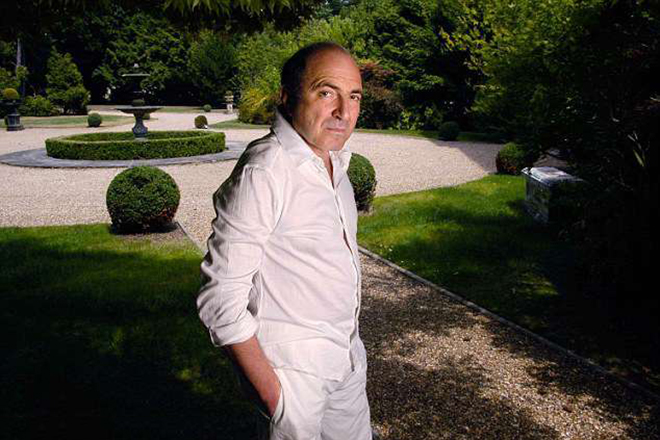The enigmatic saga of Boris Berezovsky is a complex and multifaceted tale of power, wealth, and political intrigue. Once a prominent Russian oligarch and influential figure in the 1990s, Berezovsky’s rise to prominence was marked by his close ties with President Boris Yeltsin and his involvement in shaping post-Soviet Russia’s economic landscape. However, his later years were marred by political exile, legal battles, and a dramatic fall from grace. Berezovsky’s life story is a testament to the volatility of political and economic power in Russia, reflecting both the opportunities and perils that accompany influence in a rapidly changing society.

Boris Berezovsky: Russian Billionaire
Early Life and Career
The enigmatic saga of Boris Berezovsky begins with his early life and career. Born in 1946 in Russia, Berezovsky initially pursued a career in academia and engineering. His entry into the world of business came in the 1980s, where he first made his mark in the car dealership industry. The collapse of the Soviet Union provided him with opportunities to amass considerable wealth and influence as he ventured into various sectors, including media and oil, laying the foundation for his future prominence.
Rise to Power
Berezovsky’s rise to power is a key chapter in his enigmatic saga. In the 1990s, he leveraged his business acumen and political connections to become one of Russia’s most influential oligarchs. His close relationship with President Boris Yeltsin and his role in the political and economic reforms of the era facilitated his accumulation of wealth and influence. Berezovsky’s involvement in media, finance, and politics solidified his status as a key player in post-Soviet Russia.
Influence and Media Ownership
The influence of Boris Berezovsky extended significantly through his media ownership. He controlled several major media outlets, including the television channel ORT, which allowed him to shape public opinion and political discourse. His media empire was a powerful tool for advancing his political and business interests, enabling him to exert considerable influence over Russian society and politics during his peak years.
Political Exile
The political exile of Boris Berezovsky marks a dramatic turn in his enigmatic saga. In the early 2000s, his relationship with President Vladimir Putin deteriorated, leading to increasing political and legal pressures. Berezovsky fled Russia in 2000, seeking asylum in the United Kingdom. His exile was characterized by ongoing legal battles with the Russian government, which sought his return to face charges of financial misconduct and political dissent.
Legal Battles and Allegations
The legal battles and allegations faced by Berezovsky during his exile highlight the contentious nature of his saga. Berezovsky was involved in numerous legal disputes, including high-profile lawsuits against former business partners and the Russian government. He was accused of financial crimes, including embezzlement and fraud, which further complicated his status as a fugitive and fueled the narrative of his fall from power.
Vote
Who is your all-time favorite president?
Attempted Comebacks
Throughout his exile, Boris Berezovsky made several attempts to regain influence and seek a return to the political arena. He engaged in various political activities, including attempts to support opposition movements within Russia and lobby international support. Despite his efforts to reassert his position, his attempts were largely unsuccessful, and his influence continued to wane as he remained a controversial and marginalized figure.
Personal Life and Controversies
Berezovsky’s personal life and controversies add further depth to his enigmatic saga. His lavish lifestyle, including his high-profile acquisitions and relationships, often attracted media attention. His personal affairs, including contentious relationships with family members and business associates, contributed to the complex public image that surrounded him. These controversies added layers to his public persona, reflecting the turbulent nature of his life.
Mysterious Death
The mysterious death of Boris Berezovsky in 2013 remains a significant and unresolved aspect of his saga. He was found dead in his London home under circumstances that led to speculation about foul play. While the official cause of death was ruled as suicide, theories and rumors surrounding his death continue to provoke debate and intrigue. His death marked the end of a tumultuous and enigmatic chapter in Russian and international affairs.
Legacy and Impact
The legacy and impact of Boris Berezovsky continue to be subjects of discussion and analysis. His role in shaping post-Soviet Russia’s political and economic landscape, as well as his influence in media and politics, left a lasting mark on the country. Despite his fall from power and controversial legacy, Berezovsky’s story remains a significant example of the intersection between wealth, politics, and influence in contemporary Russia.
Reflection on Power and Influence
The enigmatic saga of Boris Berezovsky offers a reflection on the nature of power and influence. His rise and fall underscore the volatility and risks associated with holding significant power in a rapidly changing political and economic environment. Berezovsky’s life story serves as a cautionary tale about the fragility of political and financial dominance and the complex dynamics that govern the rise and fall of influential figures.